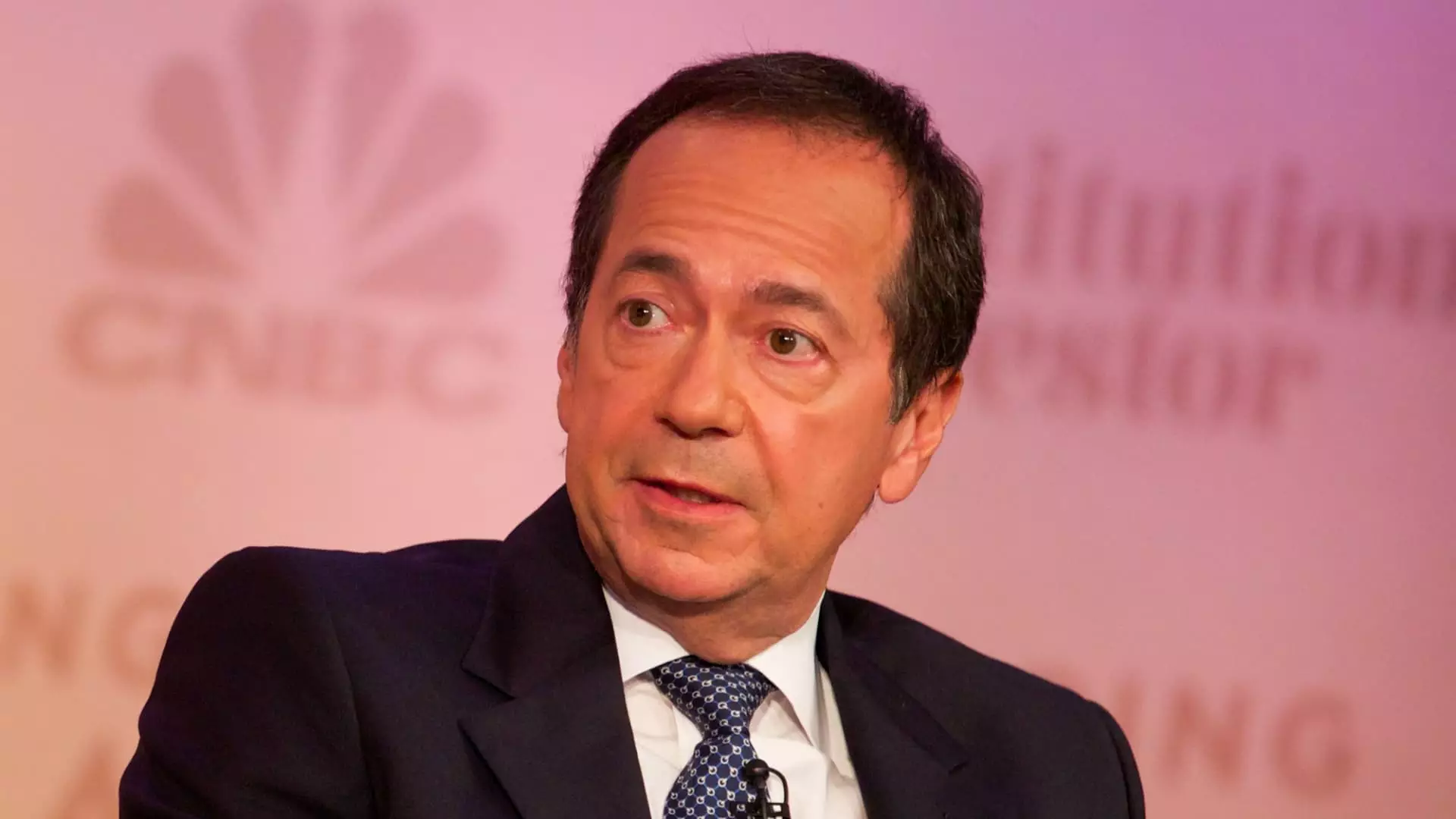John Paulson, the billionaire hedge fund manager renowned for his controversial financial strategies, has raised alarm bells about the potential instability of the U.S. financial markets amidst shifts in taxation. Known for his significant and profitable gamble against the housing market during the 2008 financial crisis, Paulson’s views carry considerable weight in investment circles. In a recent interview, he voiced strong concerns over proposed tax policies by Vice President Kamala Harris, suggesting that these changes could precipitate a market crash and a significant recession if enacted.
Paulson articulated that the proposed increases in corporate tax rates and capital gains taxes could lead to devastating effects for the economy. Specifically, he pointed to a plan to raise the corporate tax rate from 21% to 28%, alongside a staggering hike in the capital gains tax from 20% to 39%. These changes, compounded by a proposed 25% tax on unrealized gains for high-net-worth individuals and households, present a formidable challenge to the investment landscape. The implications of such an aggressive tax strategy have sent ripples through Wall Street and beyond.
The ramifications of Harris’s tax proposals—which are part of a broader Democratic agenda—have created a divided landscape among economists and financial experts. While many acknowledge the potential negative effects on corporate performance and investor sentiment, the general consensus appears to be less dire than Paulson’s warnings suggest. For instance, he believes that implementing a tax on unrealized capital gains may incite urgent liquidation of assets, placing enormous downward pressure on markets. This perspective raises critical questions about the balance between fiscal policy and economic stability.
Moreover, the specifics of the proposed tax increases add another layer of complexity. Harris’s vision includes applying an elevated tax on long-term capital gains for high earners, which, if implemented, could alter investment strategies across the board. Investors typically react to changes in tax policy by adjusting their portfolios, and Paulson anticipates that such adjustments could result in widespread asset sell-offs, further aggravating the economic environment.
Industry insiders like investor Mark Cuban have suggested that Harris may not genuinely pursue a tax on unrealized gains as part of her policy agenda, pointing to the likelihood of these proposals struggling to make their way through Congress. This disconnect raises questions about the feasibility of the plans and whether they will ever materialize in the first place. Paulson’s warnings—while based on hypotheticals—underscore the significant uncertainty that surrounds economic projections in an ever-changing political climate.
Interestingly, while Paulson’s narrative aligns closely with his support for Donald Trump, there are cautionary voices on Wall Street that do not resonate with his doomsday forecasts. Some strategists believe that while raising corporate taxes could dampen earnings, a catastrophic market crash is less likely than Paulson proposes. They argue that markets often adjust to tax changes and may not react as violently as anticipated.
Paulson’s assertions not only spotlight the sensitivities of financial markets to fiscal policy changes but also emphasize a larger conversation about wealth distribution and tax equity. His critics might argue that the proportionately higher tax burdens on the ultra-wealthy may serve as a counterbalance to income inequality, a growing concern in modern economies. Nonetheless, the discourse on tax policy remains fraught with ideological divides, as evidenced by the differing views on whether Trump’s fiscal policies are commendable or detrimental to economic growth.
In the end, Paulson’s warnings serve as a reminder that the financial landscape is deeply intertwined with policy decisions and that actions taken by political leaders can have immediate and far-reaching consequences. As investors navigate these tumultuous waters, clarity around the direction of tax policy will be crucial for shaping future market behavior. The stakes are high, and the lens through which financial leaders view policy specifics will determine not only the short-term health of the markets but also the long-term economic outlook for the nation.

